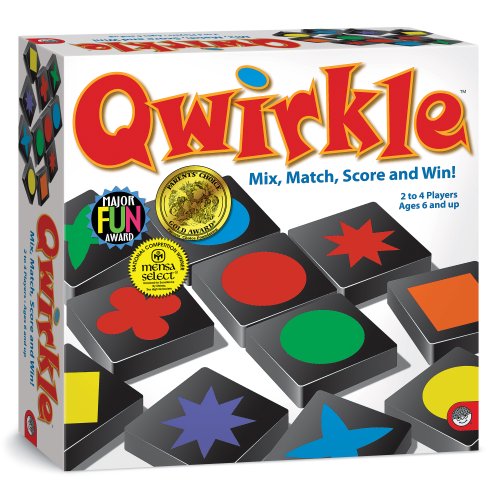Board Games have long been known to have educational benefits, hence the use of them in many classrooms around the world. But what are the main benefits and do they apply to playing in the home and family setting?
Let's look at a four of the main educational benefits of board games and how they can encouraged in family game time.
Educational Games For Toddlers
The basic skill required to play is co-operation. Even competitive games actually teach co-operation as well. This is because of the fact that board games generally require more interaction than video games and movie watching. This interaction is in the forms such as talking, taking turns and even waiting for others. There is quite different from a video game, where play just keep on going, no matter what as happened to your opponent, you never stop and wait for them!
Board Games and Their Benefits for Families

Our tactile wooden block game combines the logic and strategy of Set® with the creative multi-maneuver game play of Scrabble®. Easy-to-learn rules mean you'll be creating columns and rows of matching colors and shapes in no time! Look for opportunities to score big by placing a tile that touches multiple pieces and matches both shapes and colors; the player with the most points wins. 108 blocks.
- 2-4 players
- ages 6 and up
- 45 minutes
- Games Magazine Award: Best Family Game Runner-up 2007
- Mensa Best Mind Game Award Winner 2007; Major Fun Award Winner 2007
Please Check Update Here!!!

As stated above, co-operation is the basic skill board gaming teaches and it is from the co-operative interaction of playing a board game that many of the other educational benefits of playing board games arise.
The talking or conversation that occurs during game play enhances communication and families would do well to encourage children to talk about their gameplay. To explain why they moved, to voice concerns at other's moves and even to point out possible cheating!
Taking turns, and the waiting involved in this process, while another player takes their turn teaches both patience and respect for others. It seems a minor thing, but learning to do something as simple as making time for someone else to play their move, teaches children to be compassionate for others. To realize that the world does not revolve around them and that other people often miss out if one person rush in and vice versa. It also teaches them that sometime in life you simply have to wait and it helps to combat the impression, given by the mass media, that constant activity is the norm.
Yes, it does these things on a small scale and it only involves small time frames, but that is how teaching works. That is how the educational benefits of board game playing are passed on to children. Teachers know that most people only concentrate fully in small chunks, often somewhere between 5 and 10 minutes and for some people even less. So effective teaching often takes place in short bursts. Having to wait and observe for a few minutes between turns and then, when it is your turn, having a short period of decision making is a great way of educating and learning in small but powerful bursts.
Board Games then have at least four main educational benefits that are easily transferrable to home and family gameplay. Those four being; Co-operation, Communication, Patience and Respect.
Board Games and Their Benefits for Families